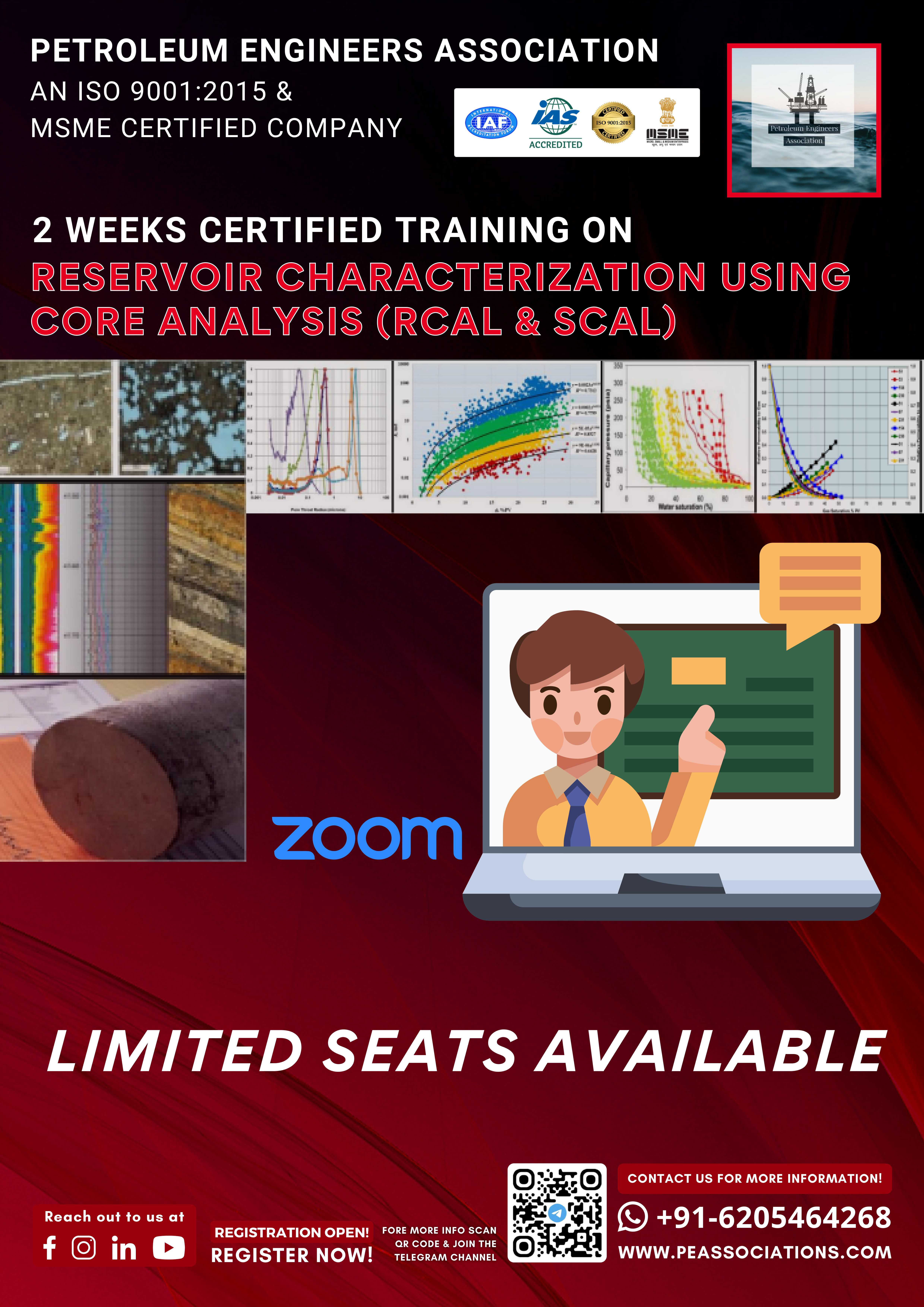About This Course
This course provides attendees with
detailed instruction on basic Petrophysics, measurement methods, and the
controls over porosity, permeability, fluids, wettability, and relative
permeability data analysis. The attendees understand the source of petrophysical
data errors through hands-on correlation of a sample log; a core dataset is
analyzed and the saturation-height model is created. The basics of rock based
Petrophysics, including routine core analysis methods and special core analysis
techniques will be presented. The course
will focus on the factors that control porosity, permeability, fluids,
wettability, capillary pressure, and relative permeability data analysis.
Reservoir Characterization Using Core Analysis (RCAL & SCAL)
This course provides attendees with
detailed instruction on basic Petrophysics, measurement methods, and the
controls over porosity, permeability, fluids, wettability, and relative
permeability data analysis. The attendees understand the source of petrophysical
data errors through hands-on correlation of a sample log; a core dataset is
analyzed and the saturation-height model is created. The basics of rock based
Petrophysics, including routine core analysis methods and special core analysis
techniques will be presented. The course
will focus on the factors that control porosity, permeability, fluids,
wettability, capillary pressure, and relative permeability data analysis.

Description
This training course is a comprehensive course to principles and applications of core special core analysis (SCAL) measurements and data interpretation. Core data represents an integral part of reservoir description and characterization. Understanding different rock properties of the reservoir is important for assigning the optimum field development plan. This course provides a with detailed instruction on basic Petrophysics, coring operations, core measurement methods, and the controls over porosity, permeability, fluids, wettability, capillary pressure, and relative permeability data analysis. Additionally, the measurements of the electrical properties will be discussed. Meanwhile, the role of relative permeability and capillary pressure data in reservoir simulation models will be discussed in details. Finally, it will highlight the applications of core data analysis, interpretation, and integration with other formation evaluation data.





